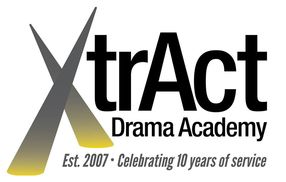Ah production week. those seven days leading into an opening performance. Or in the case of many drama and music schools the only performance. Those days when you suddenly start receiving an substantial increase in phone calls, texts and emails from parents asking about costumes, times, locations, and explanations as to why there are suddenly extra rehearsals.
The information by the way, including the extra rehearsals, can always be located in the many communications sent out throughout the year. In my case most information is in the welcome pack at the beginning of the year.
But that's by the by. What I'd like to talk about is that question about the extra rehearsals.
Most years my junior classes have a number of new students. Most of these have either never performed on a stage before, only performed on little school hall stages, or performed in dance groups and choirs. The act of getting up on a bigger stage and having to speak is a whole different ball game. I've watched the most competent kids crumble the first time they are standing on a large stage with strangers looking at them.
That is why I run the extra rehearsals earlier in the week. To give them a chance to feel those overwhelming new feelings when the strangers are predominantly their peers, my senior volunteers and a handful of parents. It's in these rehearsals that I can walk out onto the stage and talk them down. I give them options that will keep them on the stage but take some of the 'big scary' away. Most of the time, by doing this, those kids are settled by the actual performance and walk onto the stage with a nervous excitement instead of utter dread.
I shudder at the thought of a drama school that would push young students to be perfect and professional. For me, it is the skills built in to what we do, including getting up and talking in front of a bunch of strangers, that are more important that a seamless show. I like my students to know that each performance they give is more practice in developing these skills and that what is most important isn't getting it right, it's feeling scared or nervous, but getting up on that stage and trying it anyway. Facing our fears. Developing resilience. Growing stronger.
I can't be on the stage with the kids, or doing it for them, but I can try to give them the tools to give it a bloody good try. And one those tools is called, Rehearsals.
The information by the way, including the extra rehearsals, can always be located in the many communications sent out throughout the year. In my case most information is in the welcome pack at the beginning of the year.
But that's by the by. What I'd like to talk about is that question about the extra rehearsals.
Most years my junior classes have a number of new students. Most of these have either never performed on a stage before, only performed on little school hall stages, or performed in dance groups and choirs. The act of getting up on a bigger stage and having to speak is a whole different ball game. I've watched the most competent kids crumble the first time they are standing on a large stage with strangers looking at them.
That is why I run the extra rehearsals earlier in the week. To give them a chance to feel those overwhelming new feelings when the strangers are predominantly their peers, my senior volunteers and a handful of parents. It's in these rehearsals that I can walk out onto the stage and talk them down. I give them options that will keep them on the stage but take some of the 'big scary' away. Most of the time, by doing this, those kids are settled by the actual performance and walk onto the stage with a nervous excitement instead of utter dread.
I shudder at the thought of a drama school that would push young students to be perfect and professional. For me, it is the skills built in to what we do, including getting up and talking in front of a bunch of strangers, that are more important that a seamless show. I like my students to know that each performance they give is more practice in developing these skills and that what is most important isn't getting it right, it's feeling scared or nervous, but getting up on that stage and trying it anyway. Facing our fears. Developing resilience. Growing stronger.
I can't be on the stage with the kids, or doing it for them, but I can try to give them the tools to give it a bloody good try. And one those tools is called, Rehearsals.

 RSS Feed
RSS Feed